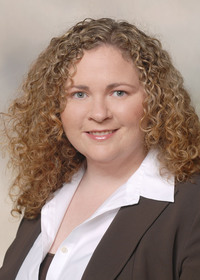Information Possibly Outdated
The information presented on this page was originally released on August 17, 2006. It may not be outdated, but please search our site for more current information. If you plan to quote or reference this information in a publication, please check with the Extension specialist or author before proceeding.
Support still available for Katrina recovery
MISSISSIPPI STATE -- A year after Hurricane Katrina turned thousands of lives upside down in South Mississippi, the Extension Service is still working to help residents get their lives back to normal.
In May, train-the-trainer sessions were started to equip volunteers in five coastal counties with new ways to help those still struggling. The Mississippi State University Extension Service received a U.S. Department of Agriculture Communities Caring for Families grant of more than $111,000 to do this work.
“When we started this in June, we found there are a lot of folks who are having a hard time moving forward,” said Jane Clary, Extension health specialist and program coordinator.
Communities Caring for Families established volunteer-led support groups in Hancock, Harrison, Jackson, Pearl River and Stone counties. Members of the support groups met for moral support and education on relevant topics.
“We trained our volunteers to form support groups because a variety of studies show to live longer, people must have friends and others they can confide in,” Clary said. “Healthy people with good social support are at consistently lower risk for mortality than their isolated counterparts.”
Katrina left many people isolated as the hurricane destroyed homes, communities, job locations and churches. Thousands on the coast are still living in small, temporary housing, and many people lost friends or family in the storm and saw others move away in the aftermath.
Clary said the grant money is being used to form and equip support groups to address some of the issues coastal residents continue to face. Groups met for eight weeks, and Clary said the Extension Service is trying to recruit more volunteers to start new support groups.
“Any individual or volunteer organization can request this training, and we will work with them to prepare them and support them with educational programming,” Clary said. “Funding is still available for this effort, and we are looking for more faith-based involvement in this program.”
Liz Sadler, Extension area health agent working from Lamar County, said the program's success has depended on volunteers, and the group that has stepped forward has not disappointed.
“In our training sessions, we worked with 24 Mississippi Homemaker Volunteers from Jackson and Harrison counties, some volunteer fire fighters in Stone County and a group of volunteers with the Life Resource Center in Picayune,” Sadler said. “These volunteers then go out into their churches and communities and spread the word about the support groups.”
Support groups met weekly for about an hour and a half. Time was spent in conversation with others in similar situations, then the Extension Service conducted half-hour long educational sessions. Topics covered included container gardening, controlling household insects, landscape recovery, parenting, understanding stress and stress reduction and more.
“The sessions we planned were to help those in attendance prepare for another disaster and continue the long road to recovery from this last disaster,” Sadler said. “We trained our volunteers to recognize emotional symptoms of stress, and we taught them how to communicate, how to keep the sessions moving in a positive direction, and how to identify those individuals who need professional counseling.”
Slow funding delayed the start of these support groups until summer, but Sadler said there are still great emotional needs among many people on the Gulf Coast.
“It can be very difficult to get people to come out anymore to events like this. A lot of them are beginning to want to go home and shut the door and not come out anymore,” Sadler said. “It was difficult to get our groups started, but now that we're on the tail end of them, just about everyone is saying that it was good to get out and meet other people.”
For more information on the Communities Caring for Families program, contact Clary at (662) 325-5014, or the local Extension office in any of the five coastal counties.





